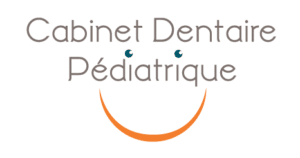The most natural breathing at rest is nasal breathing, i.e. breathing with the mouth closed. This breathing is the most physiological and functional for children and adults.
Mouth breathing can have short and medium term consequences on your children's health.
Find out what to do if your child is a mouth-breather, and what the consequences may be for his or her oral health, including orthodontic treatments.
Your child is a mouth breather, why might this be a problem?
Oral breathing is not the most functional for the body. Indeed, it does not allow to oxygenate correctly the brain and the body. This bad oxygenation can have consequences on the good dental development of the child.
In addition, a possible malformation of the palate can occur as a result of mouth breathing. That is why solutions exist in case of a too small jaw, it is notably the case of thegrowth activator.
Mouth breathing in toddlers can have different origins, temporary or not. Among the most frequent causes we can mention :
- A cold or an allergic episode,
- A deviated or obstructed nasal septum,
- An enlargement of the tonsils that impedes nasal breathing.
The consequences of mouth breathing
Mouth breathing can cause several problems for the proper development of children. It is therefore important to change this habit.
The main consequences of mouth breathing are:
- Sleep apnea,
- Coughing and snoring during the night,
- Problems on the growth of the face, with a more elongated and narrow face,
- Atypical swallowing,
- Concentration and behavioral concerns,
- Chronic fatigue,
- Dark circles,
- Low language,
- Malformations of the palate.
Oral breathing also has consequences on orthodontic treatments such as interceptive orthodontics. Indeed, the poor positioning of the mouth during the night makes the treatments longer, less effective and more unstable.
Therefore, it is important to correct mouth breathing problems before orthodontic treatment is performed.
Treatment and prevention of mouth breathing in children
When to see a dentist if your child is a mouth-breather?
If you notice your child snoring at night or coughing a lot, he or she may have mouth breathing.
If there are traces of saliva on the pillow, this is another clue. If your child has dark circles and always looks tired, this is also due to poor nighttime breathing.
Do not hesitate and consult a dentist specialized in children to solve the problem quickly, who will be able to propose solutions before considering orthodontic interception treatments.
Correcting your child's mouth breathing
Mouth breathing in children can be caused by a variety of factors, some temporary, some not.
If you have noticed your child breathing through his or her mouth for a long time and when he or she is not sick, consult a pediatrician to determine the cause. Depending on the problem, your child may see an ENT specialist, a pedodontist, an orthodontist or a speech therapist.
A speech therapist or a maxillofacial physiotherapist can help him/her to do exercises to learn to breathe through the nose and to re-muscle his/her facial muscles.
An ENT specialist will be able to manage an excessive volume of tonsils, via an ablation if necessary.
A pedodontist or orthodontist may recommend night braces to better position the jaw.
Discover through our dedicated articles which are the cost of orthodontic treatment and the orthodontic reimbursements possible for the care of your child.




